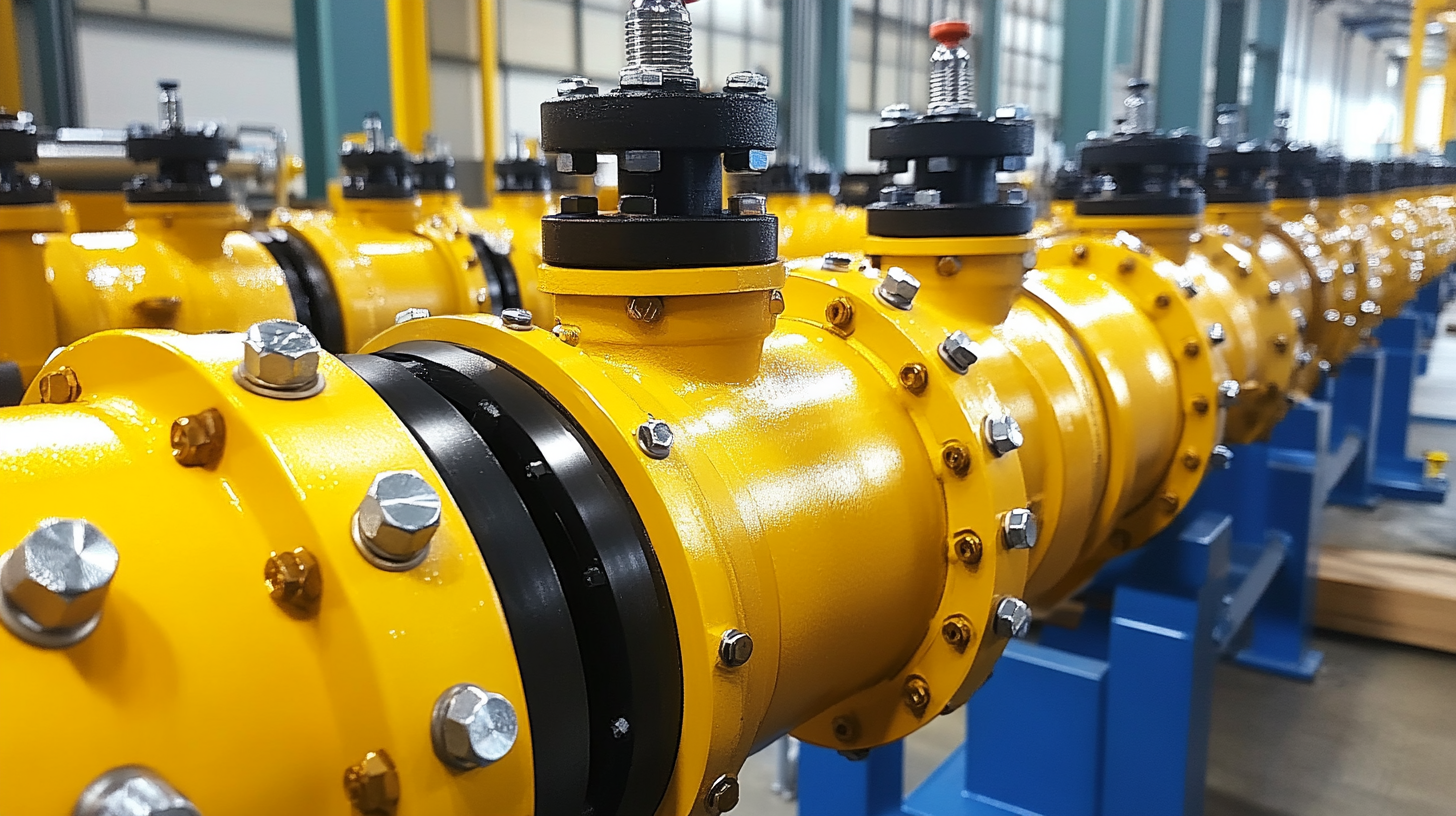In the realm of industrial operations, the efficiency of system management is paramount, and a critical component that significantly influences this efficiency is the use of Industrial Valves. According to a recent report by MarketsandMarkets, the global industrial valves market is projected to grow from USD 65.91 billion in 2021 to USD 84.15 billion by 2026, at a CAGR of 5.0%. This growth highlights the increasing importance of Industrial Valves in optimizing processes across various sectors, including oil and gas, water treatment, and chemical manufacturing. These valves not only regulate fluid flow but also enhance system safety and integrity by preventing leaks and managing pressure effectively. As industries strive for greater sustainability and operational excellence, the adoption of advanced Industrial Valves becomes imperative, ensuring seamless integration into modern automated systems while contributing to overall energy efficiency.

Industrial valves play a pivotal role in enhancing operational efficiency across various sectors. They regulate the flow of liquids and gases within systems, ensuring optimal performance and safety. According to a report by MarketsandMarkets, the global industrial valves market is projected to grow from USD 64.5 billion in 2021 to USD 85.8 billion by 2026, reflecting the increasing recognition of the importance of effective flow management in industrial processes.
One of the significant advantages of modern industrial valves is their ability to reduce energy consumption. Efficient valves can minimize leaks and pressure drops, leading to substantial savings on energy costs. For instance, a study conducted by the American Society of Mechanical Engineers indicates that improving valve efficiency can reduce operating costs by up to 20% in certain applications.
**Tips:** Ensure regular maintenance of industrial valves to avoid wear and tear, which can lead to inefficiencies. Additionally, investing in high-quality, automated valves can facilitate better control over system dynamics, enhancing productivity. By optimizing valve selections based on specific operational needs, businesses can significantly improve their overall efficiency.

Industrial valves play a crucial role in process control, providing key benefits that enhance system efficiency and reliability. One of the primary advantages is their ability to regulate flow and pressure. According to a report by Markets and Markets, the global industrial valve market is projected to reach $100 billion by 2025, driven largely by the demand for automation in various industries. By using valves designed for precise control, companies can significantly reduce energy consumption, leading to lower operational costs. Moreover, the use of advanced valve technologies, such as smart valves, allows for real-time monitoring and adjustments, ensuring optimal performance.
Another significant benefit of utilizing industrial valves is their contribution to safety and compliance within operations. A study by the American Society of Mechanical Engineers highlighted that proper valve selection and maintenance are essential in preventing leaks and hazardous incidents, especially in sectors like oil and gas, where the stakes are high. With robust valve systems in place, industries can effectively manage potentially dangerous fluids, minimizing risks and ensuring adherence to regulatory standards. As industries increasingly prioritize safety and sustainability, the integration of efficient industrial valves becomes paramount in achieving these objectives.
Industrial valves play a crucial role in enhancing system reliability and safety across various sectors. According to a report by MarketsandMarkets, the global valve market is projected to reach $93.85 billion by 2025, driven by the increasing need for system efficiency and enhanced operational safety. These valves act as essential control mechanisms, regulating fluid flow and pressure within pipelines, thus minimizing the risks of leaks and system failures.
Moreover, industrial valves are designed with advanced materials and technologies that significantly contribute to operational safety. For instance, the use of automated and smart valves facilitates real-time monitoring and control, allowing for quick response to potential failures. A study conducted by Frost & Sullivan indicates that implementing such technologies can reduce unplanned downtime by up to 30%, thereby enhancing overall system reliability. By ensuring precise control over fluid dynamics, industrial valves not only improve performance but also safeguard plant personnel and assets from catastrophic failures.
This pie chart illustrates the key advantages of industrial valves in system management, highlighting their contribution to efficiency, reliability, and safety.
Advanced industrial valves play a crucial role in optimizing resource management across various industries. These valves are designed to enhance fluid control efficiency, allowing for precise regulation of flow rates and pressures. By implementing advanced technologies such as automated actuators and smart sensors, companies can monitor and adjust their systems in real-time. This leads not only to improved operational efficiency but also to significant reductions in resource wastage.
Moreover, the use of industrial valves contributes to energy conservation and sustainability efforts. By maintaining optimal flow conditions and minimizing leaks and pressure drops, these valves help to lower energy consumption and operational costs. Industries that adopt advanced valve solutions can expect a more streamlined process, resulting in increased productivity and reduced environmental impact. The integration of these sophisticated systems into resource management strategies empowers organizations to achieve their goals more effectively while maintaining a commitment to sustainability.

In today’s industrial landscape, smart valve solutions are becoming increasingly critical for organizations aiming to enhance cost savings and energy efficiency. By integrating advanced technologies into industrial valves, businesses can achieve unparalleled control over their processes. These smart valves are equipped with sensors and actuators that provide real-time data, enabling precise flow regulation and reducing wastage. This capability ensures that resources are used optimally, leading to significant reductions in both operational costs and energy consumption.
Moreover, the adaptability of smart valve systems allows for seamless integration with existing infrastructure. This not only minimizes the need for extensive upgrades but also maximizes the lifespan of existing equipment. By utilizing automated control systems, operators can monitor performance and make informed adjustments, which ultimately results in better overall efficiency. As industries strive towards sustainability, investing in smart valve technologies represents a strategic move, allowing organizations to maintain competitiveness while meeting environmental targets.
| Advantage | Description | Impact |
|---|---|---|
| Cost Savings | Reduced operational costs through efficient flow regulation. | High |
| Energy Efficiency | Minimized energy consumption by optimizing valve performance. | High |
| Reduced Downtime | Enhanced reliability leads to fewer maintenance issues and operational interruptions. | Medium |
| Improved Control | Precision control over fluid dynamics ensures optimal process management. | High |
| Sustainability | Environmentally friendly solutions through reduced waste and emissions. | Medium |
